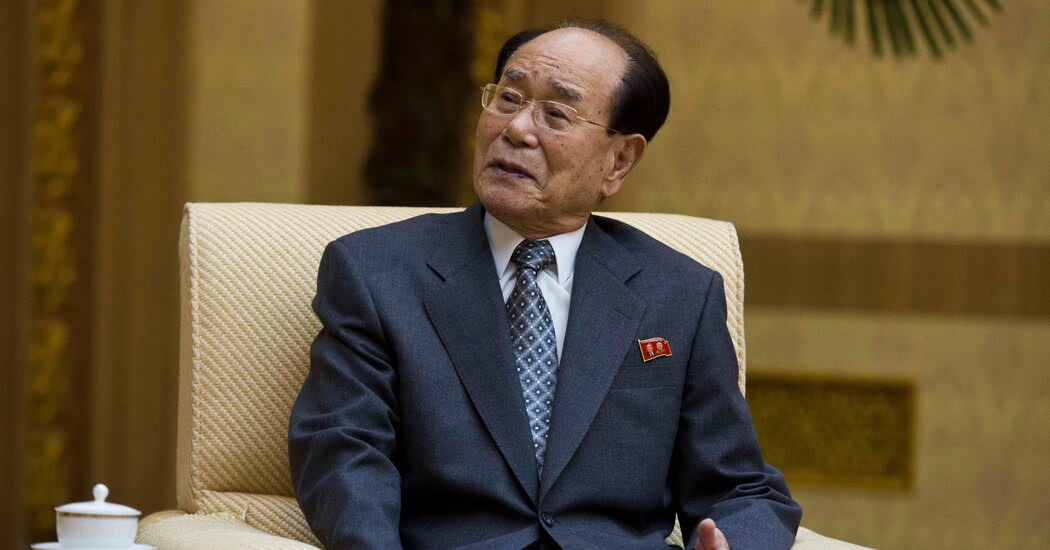
Kim Yong-nam, North Korea's longtime ceremonial head of state, dies at 97
Kim Yong-nam, who served as North Korea's nominal head of state and loyalist to three generations of the Kim family, died Monday at 97.
November 4, 2025 - 01:40 AM ET • 2 min read
Kim Yong-nam, North Korea's longtime former ceremonial head of state and a key diplomatic figure who maintained loyalty across three generations of the ruling Kim dynasty, died Monday at the age of 97.
The country's official Korean Central News Agency (KCNA) reported Tuesday that Mr. Kim died of multiple organ failure caused by cancer. Following the announcement, North Korean leader Kim Jong-un visited Mr. Kim's bier early Tuesday to lay a wreath and express deep condolences, KCNA said. The agency hailed him as an "old-generation revolutionary who left extraordinary achievements in the development history of our party and country."
Mr. Kim was known for his remarkable political longevity in a totalitarian state frequently marked by purges. He was not related to the ruling Kim family but managed to stay in favor throughout the governments of Kim Il-sung, the founder of North Korea; his son, Kim Jong-il; and his grandson, Kim Jong-un.
For more than two decades, Mr. Kim served as the Chairman of the Presidium of the Supreme People's Assembly, a role that made him the nominal or ceremonial head of state. While the supreme leader holds actual power, Mr. Kim's position required him to serve as the country's senior diplomat and external face, receiving foreign dignitaries and representing Pyongyang at international events. He was often the window for dialogue with external nations, including Japan.
His career in the highest echelons of power spanned over four decades. He served on the ruling Workers' Party's Politburo starting in 1978, maintaining that senior position until his retirement from public service in 2019. His ability to navigate the volatile political landscape of Pyongyang and remain a trusted loyalist to three successive, absolute rulers distinguished him from many contemporaries who were often removed or executed.